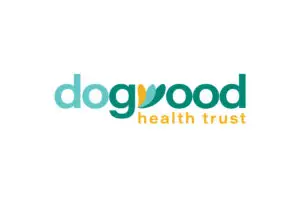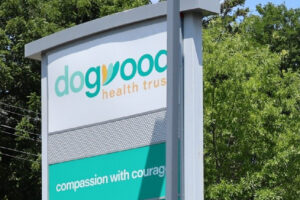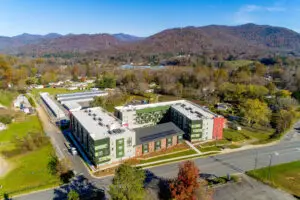Dogwood has invested approximately $3 million so far; on track to reach $5 million by end of year.
Asheville, N.C. – In keeping with the agreement with the NC Attorney General’s Office, Dogwood Health Trust will provide $5 million per year for five years for the purpose of funding programs and services dedicated to addressing Substance Use Disorder (SUD) for residents of Western North Carolina. Approximately 52,000 people in WNC struggle with substance use disorder and almost half (47.4%) of adults living in the region report that their lives have been negatively affected by substance misuse (by self or someone else)1. To date, Dogwood has awarded 20 grants totaling approximately $3 million and is on track to meet their $5 million commitment by the end of 2020. For a full list of grantees to date, please visit www.dht.org/substance-use-disorder.
“Our overarching goals are significant,” said April Bragg, PhD, Sr. Impact Officer for Substance Use Disorder with Dogwood Health Trust. “We want to reduce opioid deaths for the region by 40% in 2020; that is quite bold especially considering the current pandemic.” Bragg goes on to say that as part of the organization’s commitment to equity, Dogwood also wants to reduce substance use among minority populations and teens. In addition, Dogwood will work to deliver one or more substance use disorder-related programs to every county within the 18-county and Qualla Boundary region of Western North Carolina over time.
Dogwood’s strategies to prevent opioid overdose fatality include supporting efforts around syringe exchange, naloxone availability, and medication assisted treatment (MAT). Dogwood has awarded five grants to expand syringe exchange programs, two to improve the availability of naloxone, and seven to support and expand MAT programs. The estimated impact of those specific grants, measured in terms of lives saved from overdose death, aligns with the goal of a 40% reduction overall. Partners like Steady Collective, Buncombe County Health and Human Services, WNCAP, Appalachian Mountain Community Health Centers (AMCHC), and MAHEC routinely provide updates to Dogwood in order to inform projected impact in the community
AMCHC is a Federally Qualified Health Center with six locations in Buncombe, Cherokee, Graham and Jackson counties. AMCHC integrates behavioral health into the primary care setting, with a focus on serving vulnerable and high-risk populations, many of whom may be homeless or newly housed, or struggling with SUD. To reach these groups, AMCHC utilizes Peer Support Specialists and a Mobile MAT program to provide medical and emotional support, SUD care and prevention, and assistance with medications and appointments.
With COVID-19 safety precautions, AMCHC’s Mobile MAT program faced challenges in connecting patients in-person with a clinician, psychiatrist, or prescriber. With support from Dogwood, AMCHC was able to purchase iPads with hot spots to use in their Mobile MAT program. This more reliable technology allowed the Peer Support Specialists to easily facilitate a visit with a mental health professional, a primary care physician, or a counselor. The grant also covers costs associated with uninsured patients, visits with therapists, and some medications.
“The first five months have gone extremely well,” said AMCHC physician Dr. James Hartye. “Now, we’re looking at expanding the program into the far west counties, starting with Cherokee.” Hartye notes that they’re currently testing the technology to see how well it can perform in areas with less reliable internet service.
Dogwood Health Trust is a North Carolina nonprofit corporation with the sole purpose of
dramatically improving the health and well-being of all people and communities of Western North Carolina. Dogwood Health Trust was created from the net proceeds of the sale of Mission Hospital and focuses on innovative ways to address the many factors that contribute to overall health and wellness. To learn more, please visit www.dht.org
1SAMHSA (2018 NSDUH survey) and WNCHN survey (2018), respectively





